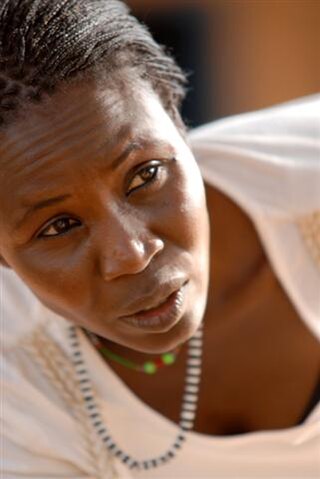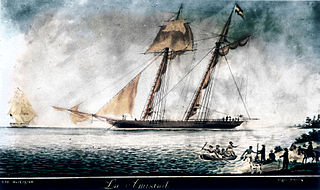
Lozère is a landlocked department in the region of Occitanie in Southern France, located near the Massif Central, bounded to the northeast by Haute-Loire, to the east by Ardèche, to the south by Gard, to the west by Aveyron, and the northwest by Cantal. It is named after Mont Lozère. With 76,604 inhabitants as of 2019, Lozère is the least populous French department.

The Mende are one of the two largest ethnic groups in Sierra Leone; their neighbours, the Temne people, constitute the largest ethnic group at 35.5% of the total population, which is slightly larger than the Mende at 31.2%. The Mende are predominantly found in the Southern Province and the Eastern Province. The Mende are mostly farmers and hunters. Some of the major cities with significant Mende populations include Bo, Kenema, Kailahun, and Moyamba.

Mende is a commune and the prefecture of the department of Lozère, in the region of Occitania, Southern France. Its inhabitants are called the Mendois. The city, including the first traces of dwellings date back to 200 BC, was originally named Mimata, probably in reference to the mountains that surround it.

Mende is a major language of Sierra Leone, with some speakers in neighboring Liberia and Guinea. It is spoken by the Mende people and by other ethnic groups as a regional lingua franca in southern Sierra Leone. In southern Sierra Leone, it is the regional lingua franca that allows all tribes to communicate.

Gévaudan is a historical area of France in Lozère département. It took its name from the Gabali, a Gallic tribe subordinate to the Arverni.

Mende Nazer is a UK-resident, Sudanese author and human rights activist. Nazer was a slave in Sudan and in London for eight years. She later co-wrote the 2002 book Slave: My True Story.

Erich Mende was a German politician of the Free Democratic Party (FDP) and Christian Democratic Union (CDU). He was the leader of FDP from 1960 to 1968 and the vice-chancellor of West Germany from 1963 to 1966.

The two arrondissements of the Lozère department are:
- Arrondissement of Florac, with 38 communes. The population of the arrondissement was 13,242 in 2016.
- Arrondissement of Mende, with 114 communes. The population of the arrondissement was 63,180 in 2016.

The arrondissement of Mende is an arrondissement of France in the Lozère department in the Occitanie région. Its INSEE code is 482 and its capital city, and prefecture of the department, is Mende. Its population is 63,180 (2016), and its area is 3,479.4 km2 (1,343.4 sq mi).
The following is a list of the 13 cantons of the Lozère department, in France, following the French canton reorganisation which came into effect in March 2015:

La Amistad was a 19th-century two-masted schooner, owned by a Spaniard colonizing Cuba. It became renowned in July 1839 for a slave revolt by Mende captives, who had been captured and sold to European slave traders, and illegally transported by a Portuguese ship from West Africa to Cuba in violation of existing European treaties against the Atlantic slave trade. Two Spanish plantation owners, Don José Ruiz and Don Pedro Montes, bought 53 captives, including four children, in Havana, Cuba, and were transporting them on the ship to their plantations near Puerto Príncipe. The revolt began after the schooner's cook jokingly told the slaves that they were to be "killed, salted, and cooked." Sengbe Pieh, a Mende man, also known as Joseph Cinqué, unshackled himself and the others on the third day and started the revolt. They took control of the ship, killing the captain and the cook. In the melee, three Africans were also killed.
Philipof Opus, was a philosopher and a member of the Academy during Plato's lifetime. Philip was the editor of Plato's Laws. Philip of Opus is probably identical with the Philip of Medma, the astronomer, who is also described as a disciple of Plato.

The Mende Kikakui script is a syllabary used for writing the Mende language of Sierra Leone.

The Roman Catholic Diocese of Mende is a diocese of the Latin Rite of the Roman Catholic Church in France. The diocese covers the department of Lozère.

Mende, also Mendae or Mendai (Μένδαι), or Menda (Μένδα), or Mendis, was an ancient Greek city located on the western coast of the Pallene peninsula in Chalkidiki, facing the coast of Pieria across the narrow Thermaic Gulf and near the modern town of Kalandra.
Mende, Hungary is a village in Pest County, Hungary.
Seim, or Mende, is a Sepik language of Yirwondi ward and surroundings in Mawase Rural LLG, Sandaun Province, Papua New Guinea.

Alain Bertrand was a French politician. Born in Saint-Juéry, Tarn, he was originally a member of the Socialist Party before switching to LREM. At the time of his death, Bertrand had served as the Senate's representative of the Lozère department since 2012. He was mayor of Mende from 2008 to 2016. He also previously served as the vice-president of the regional council of Languedoc-Roussillon from 2004 to 2011.













